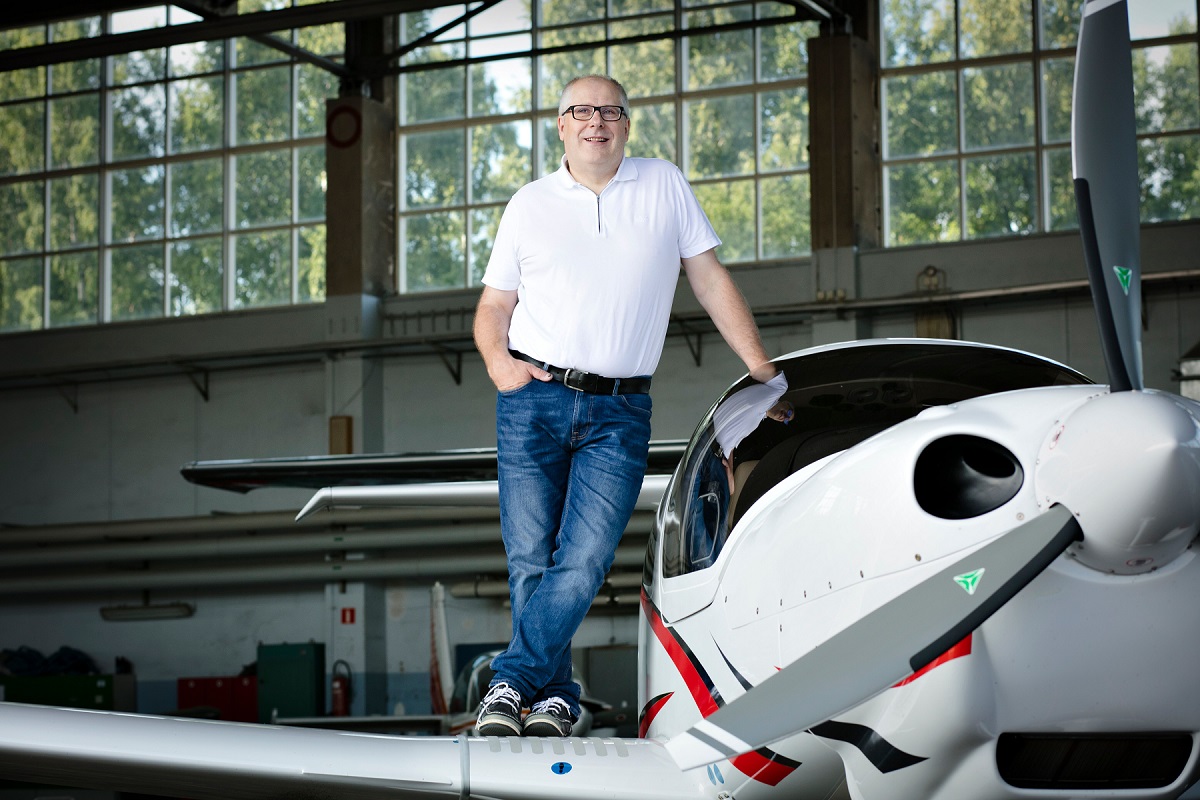We use cookies to personalise content & improve our services. By using our site, you consent to our Cookie Policy. Read more
King of Data


Data volumes are growing exponentially. Pasi Sutinen of Telia already knows, where data is heading next.
All is quiet at Helsinki-Malmi Airport. When a single aeroplane banks towards the airport, Pasi Sutinen’s face brightens up. Aviation enthusiast Sutinen sees more than just a plane. He sees data.
"Data is already being gathered on traffic. As smart traffic becomes more common, real-time data will be used to monitor the movements and condition of every car, aeroplane and ship. This means data volumes will grow exponentially", says Sutinen, who is Telia’s Director, Data Center Business.
Of course, data will not be collected on traffic only. Research and advisory company Gartner predicts that over 20 billion objects will be connected to the IoT by 2020.
"In addition to IoT, 5G is set to swell data volumes in the near future."
Where will all this data be stored, analysed and mined?
Data leads the way
Pasi Sutinen has always been fascinated by data and its movements. He followed the data trail straight from university to work as an IT architect for the food industry, then became a project manager for Sonera and moved to Tieto, where he progressed to Technical Director. Sutinen has been involved in 15 data center projects during his career.
He returned to Telia in 2016 with just one thing in mind.
"I wanted to create something new."
Telia's data center is unique. One of the largest and most modern open data centers in the Nordic countries is being built on a one-hectare site in the Pitäjänmäki area of Helsinki. The Telia Helsinki Data Center will cost 150 million euros to build and have room for almost 200,000 servers. It will be capable of processing and storing the data of millions of business customers and its network connections will cover the entire globe.
"We are building a highly automated and energy-efficient data center", says Sutinen.
The construction project is progressing on schedule. The data center’s topping out ceremony was held in June, and the center will be ready next spring.
"The new data center will be a genuine digitalisation factory. For example, customers will be able to buy equipment facility, communications, networking and cloud computing services, as well as IoT and big data services of course."
These services will enable customer companies to raise their degree of automation and redeploy maintenance resources to development.
Pasi Sutinen has enjoyed the data center project greatly.
"I've always been interested in building and creating new things. With so many things already invented, to succeed you need to create and build new wholes from developed solutions."
Text: Anne Peltola
Photo: Jaakko Lukumaa